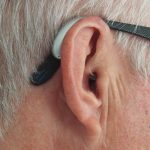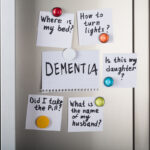
Athina Aruldass finds that management of serious neuropsychiatric disorders should acknowledge the importance of poor physical health and target restoration of both brain and body function.
[read the full story...]
Athina Aruldass finds that management of serious neuropsychiatric disorders should acknowledge the importance of poor physical health and target restoration of both brain and body function.
[read the full story...]
In a joint blog, Dr Esha Abrol and Dr Clara Belessiotis-Richards critique this individual participant meta-analysis on sex differences in dementia risk and risk factors.
[read the full story...]
In this blog, Daisy Long and the elf apprentices that took part in the woodland workshop undertook a group critical analysis on Lin, F.R., Pike, J.R., Albert. M.S., Arnold, M., Burgard, S., Chisolm, T. & others (2023) paper on Hearing intervention versus health education control to reduce cognitive decline in older adults with hearing loss in the USA (ACHIEVE): a multi-centre, randomized controlled trial.
[read the full story...]
KCL Masters student Azza Elsheikh summarises a recent qualitative study exploring the experiences of online psychodrama for people with dementia.
[read the full story...]
Clarissa Giebel reflects on a recent systematic review which investigates online support for family carers of people with dementia.
[read the full story...]
Clarissa Giebel reviews a recent study exploring the impact of auditory hallucinations on ‘living well’ with dementia using findings from the IDEAL programme.
[read the full story...]
There are more than 400,000 older people living in care homes in the United Kingdom (UK) and around 80% of those people are likely to have dementia (SCIE, 2020). Care homes can be funded by the local authority, the National Health Service (NHS) or privately: it is estimated that around 40% of residents in care [read the full story…]

Alice Potter reviews a study of a new multi-modal performing arts intervention programme for carers of people with dementia, which suggests this approach is feasible and acceptable.
[read the full story...]
Catherine Talbot reviews a recent qualitative study on accessing post-diagnostic dementia care before and since COVID-19, which highlights the need to reduce inequalities in dementia care.
[read the full story...]
This blog on a review evaluating the association between periodontal disease (PD), Alzheimer’s disease (AD) and mild cognitive impairment (MCI) was written by the Scottish Special Care StRs following a critical appraisal workshop. The review included 13 studies and suggests a link between PD and AD/MCI, but the evidence is limited.
[read the full story...]